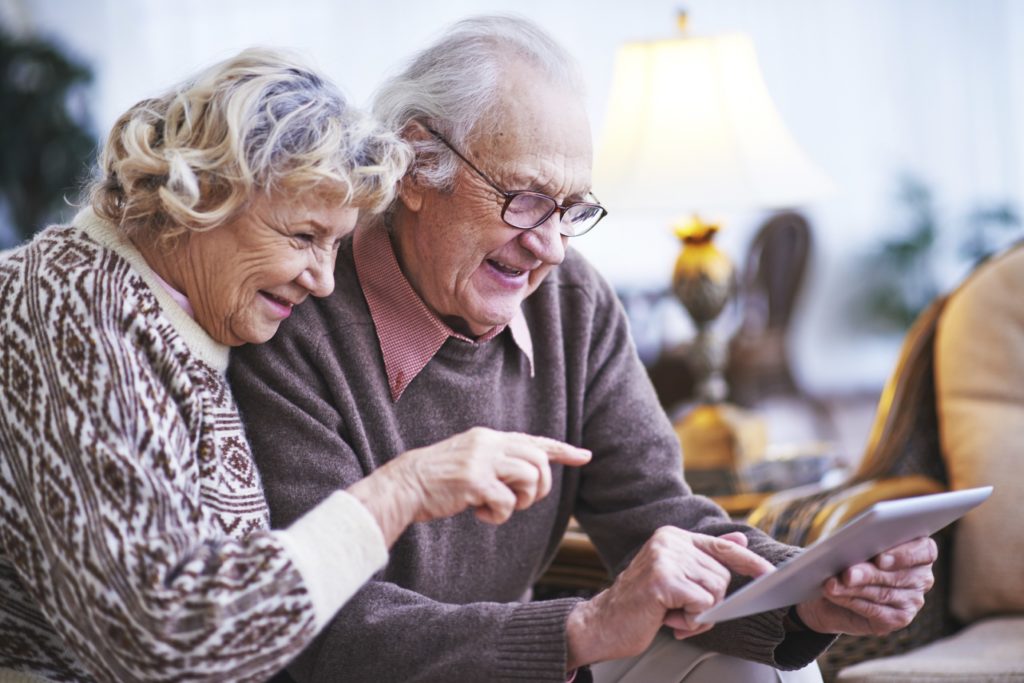You’ve heard of America’s “war on poverty” and “war on drugs,” but now some in government are waging war against older people, namely anyone who is age 60 and up. Politicians and citizens have divided into two factions on the issue of managing COVID-19. One camp emphasizes the cost of closing businesses, the other, the value of life. These two positions are irreconcilable because they are rooted in different values, similar to the values wars that “Pro-lifers” and “Pro-choicers continue to wage on the abortion issue 47 years after Roe vs. Wade. If we want to mitigate the likelihood of another wedge issue that divides Americans, we need to develop an age-friendly option between this binary choice of “opening up” or “closing down” public life.
There are seven generations alive today, an unprecedented number in human history. In many Western societies, age-segregation is the norm, and America leads in being the West’s most age-segregated society. Although age-segregation is relatively new and historically abnormal, age-isolating living arrangements, like gated communities, independent living facilities, retirement villages, and apartments that cater to Millennials, are typical in the United States. In the workplace, age discrimination beginning at about age 50 years was a significant issue pre-COVID-19. Older generations often do not value the skills and agility of younger workers, and younger generations are often oblivious to the critical experience of those with decades of experience.

This dynamic is the breeding ground for workplace discrimination, and it’s less costly for companies to swap out older employees for younger ones anyway. As older people are at a higher risk for COVID-19 complications, age discrimination in the workplace will likely worsen unless we use the pandemic to help us value people of all ages equally.
In my recent book, Connecting Generations: Bridging the Boomer, Gen X, and Millennial Divide, I interviewed thirty Boomers, Gen Xers, and Millennials who reported that they do not have a close friend who is younger or older than they are. That didn’t surprise me; it just saddened me because of the mutual satisfaction that people could experience if they had even one friend from other generations.
We’re now seeing the consequences of the lack of intergenerational connections: a culture war over COVID-19. People who argue for the reopening of public life are correct in highlighting the damaging effects of a shuttered economy, time lost educating children, and a growing mental health crisis caused by physical distancing. On the other side of the debate, we can prevent thousands more from dying and mitigate the number of people who will become ill and have complications if we don’t reopen public life haphazardly.
Each side can’t see past its worldview. Those who prioritize the economic cost of the virus inadvertently devalue human life, and those who prioritize the value of human life unintentionally underestimate the consequences of closure. That is why I distrust how both factions use the phrase, “protecting our seniors.”
A caring definition of “protecting our seniors” means making it possible for those who are over age 60 to contribute their wisdom and experience to society while protecting them from the ravages of COVID-19. This version of “protecting our seniors” requires workplaces and communities to reconfigure physical spaces for seniors so that they would be at a much lower risk for infection, and the Federal and state governments to systematically test, trace, and track infected people.
People in this camp take a long view of the Coronavirus and understand that even after we’ve mitigated its lethal effects, there will be new pandemics. Outbreaks of HIV (1981-present), SARS (2002-3), H5N1 Bird Flu (2003-2007), H1N1 Swine Flu (2009-10), MERS (2012-present), Ebola (2013-16), Zika Virus (2015-16) are pandemic trend data. They enable us to predict with a high degree of confidence that new epidemics will happen. The changes that we make because of COVID-19 now will also better prepare us for the future.
A sinister meaning of “protecting our seniors” means imprisoning people who are older in their homes, with periodic furloughs outside for good behavior. Policymakers who think like this don’t want to make painful economic and social adjustments so that people of all ages are equally valued. They’re either waiting for a vaccine, or for enough older people to be infected or die until we reach herd immunity. How else is it possible to explain at this late date the inability to do extensive testing and an unwillingness to make mask-wearing mandatory when in public? And how else can we explain the cruel indifference toward older adults in nursing homes whose death count we will probably never know?
A third option is to adopt an age-friendly approach in which all generations are invested in each other’s success and are willing to share in adjusting their way of life. Seniors would have to compromise some of their freedoms and voluntarily shelter in place when the virus surges and conduct business at inconvenient off-peak hours. Workplaces would have to invest in making their factories and offices safe for older workers by reducing the number of employees by staggering hours and providing training, equipment, and incentives for older employees to work from home. Young and old would make shared sacrifices in return for our collective emotional and financial welfare.
Don’t expect politicians of either party to rally us together during this crisis. Those days disappeared with President Bush and 9/11. But it doesn’t take an active Congress or presidential leadership to launch a grassroots movement for an age-friendly approach to living with COVID-19 and future pandemics so that politicians must respond. An “either/or” choice of “open life up” or “keep it closed” is a losing strategy with heavy financial, economic, educational, and emotional losses. But an age-friendly approach to community health will encourage all generations to be kind and responsible in the face of this and future pandemics.
